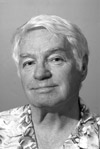My Almost Secret Life
A Spy Among Us: Did I ever tell you about the time I almost became part of our nation’s intelligence network? Perhaps by now I’d be head of the whole CIA, delivering the daily Intelligence Assessment Report to President Bush, who would of course ask my opinion about it, then ignore the report and whatever I thought. Or, on the other hand, I might have turned out to be a lowly file clerk, shuffled to a corner desk in some dark, crummy basement room.

Reflect, for a moment, back to the 1950s, during the Eisenhower administration. The Dulles brothers were running things, Ike being very busy on the golf course. John Foster Dulles was secretary of state, fulminating about “massive assured destruction,” and Allen Dulles was head of the CIA. The bloody Korean War had ended but the Cold War was hotter than blazes. The French having vamoosed from Vietnam after their defeat at Dien Bien Phu, the U.S. decided to move in. Otherwise, according to the domino theory, godless communism would take over what was then known as Indo-China.
Never mind that the colonial powers were through with the country; we had a noble mission to save the Free World. The fact that African Americans in the American South weren’t free to vote, eat at white lunch counters, or go to white universities was not a priority with Ike. This was before southern schools realized that the “colored,” as they called African-American people back then, among other things, were very talented athletes and should be recruited.
Uncle Sam, finding that I had graduated from college with an economics degree, decided that I could be of great assistance to the nation in the infantry. My first taste of Army life came at Ft. Leonard Wood, a dismal dustbowl in the boondocks of Missouri. We were virtual prisoners there, but if you could get a pass to the nearby town of Rolla, you could witness some fierce street fights among the local boys. It was wise not to get too close.
Most of the young men in my platoon had been plucked from college soon after they graduated. Today, of course, the draft is long gone and volunteers fill the military ranks, though relatively few with college degrees seem to want to become foot soldiers, and very few indeed from the families of congressmembers.
But I digress. There I was, even before dawn’s rosy fingers streaked the sky, chowing down, shouldering my M-1, and marching off to train. And usually not back to the barracks until dark.
One miserably steamy day, a message came for me while we were out in the field. I was to go back to the barracks, change into my dress uniform, and report to such-and-so building. There, I was greeted by a pleasant-looking man in civvies. He chatted with me about current events. Having been incommunicado for weeks, with no access to a newspaper, TV, or radio, I had little idea about what was going on out there in the Free World. But I managed, I think, to impress him that I knew at least as much as those guys fighting in the streets of Rolla.
It soon became clear that I was a candidate for some sort of intelligence work in the nation’s capital, far from the dust of Ft. Leonard Wood or devastated South Korea. (The Korean War was over but troops were still being sent there-and still are.)
If I played my cards right, I might be able to spend my two years of duty in the exciting, glamorous environs of Washington, D.C., perhaps dating daughters of congressmembers and finding entree into the Halls of Power. And by day, helping collect and analyze intelligence that would help save the good old Free World; maybe I’d even be sent to foreign cities on dangerous assignments I wouldn’t tell my mother about. I was interested in anything to get me off guard duty at Leonard Wood-after a day’s training sometimes I’d be posted on the far boundaries of the godforsaken base that no one in their right mind would try to slip into. (Out of, yes.)
As you may have guessed, I didn’t play my cards right with that headhunter. I got a little giddy, asked him irrelevant questions, even-you will not believe this-joked about eventually writing a book about my life in the intelligence world.
After a few minutes, he thanked me. I went back to the barracks, changed into fatigues, and returned to training. I never heard from him or anyone else about what might have been my brilliant career in Washington.
But I have no regrets. Here I sit, having spent 47 years in beautiful Santa Barbara, a town full of interesting people. And who knows, the intelligence people might have posted me back in Ft. Leonard Wood and I would have spent 47 years in Rolla.



